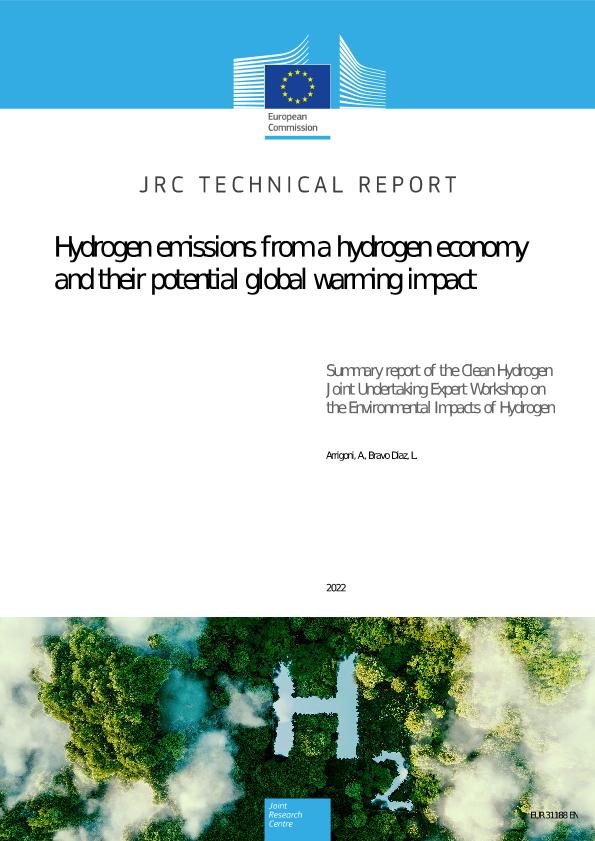Hydrogen emissions from a hydrogen economy and their potential global warming impact
Summary report of the Clean Hydrogen Joint Undertaking Expert Workshop on the Environmental Impacts of Hydrogen
Hydrogen (H2) is expected to be a key instrument to meet the European Union (EU) Green Deal main objective: i.e., climate neutrality by 2050. Renewable hydrogen deployment is expected to significantly reduce EU greenhouse gas (GHG) emissions by displacing carbon-intensive sources of energy. However, concerns have been raised recently regarding the potential global warming impact caused by hydrogen emissions. Although hydrogen is neither intentionally emitted to the atmosphere when used nor a direct greenhouse gas, hydrogen losses affect atmospheric chemistry, indirectly contributing to global warming. To better understand the potential environmental impact of a hydrogen economy and to assess the need for action in this respect, the Clean Hydrogen Joint Undertaking and the U.S. Department of Energy jointly organised, with the support of the European Commission, Hydrogen Europe, Hydrogen Europe Research, the Hydrogen Council, and the International Partnership for Hydrogen and Fuel Cells in the Economy, a 2-day expert workshop. Experts agreed that a renewable hydrogen economy would significantly reduce the global warming impact compared to a fossil fuel economy. However, hydrogen losses to the atmosphere will impact the lifetime of other greenhouse gases, namely methane, ozone, and water vapour, indirectly contributing to the increase of the Earth’s temperature in the near-term.
2022-08-18
Publications Office of the European Union
JRC130362
978-92-76-55848-4 (online)
1831-9424 (online)
EUR 31188 EN , OP KJ-NA-31-188-EN-N (online)
| Language |
Citation |
| ENG | Arrigoni, A. and Bravo Diaz, L., Hydrogen emissions from a hydrogen economy and their potential global warming impact, EUR 31188 EN, Publications Office of the European Union, Luxembourg, 2022, ISBN 978-92-76-55848-4, doi:10.2760/065589, JRC130362. |
jrc130362_report_h2_emissions_workshop_ju_final_w_identifiers_v2.pdf
(3.34 MB - PDF)

